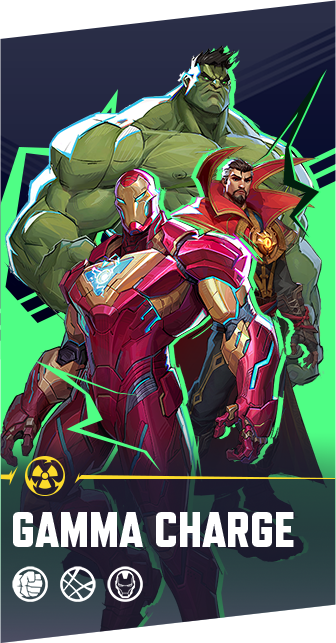Marvel Rivals has captivated millions of players worldwide with its thrilling combat mechanics and diverse roster of Marvel characters. As a competitive multiplayer game, the matchmaking system plays a crucial role in ensuring fair and balanced gameplay experiences. However, questions about whether Marvel Rivals implements skill-based matchmaking (SBMM) have sparked heated debates among the community.
The concept of SBMM revolves around pairing players based on their skill levels to create evenly matched games. This approach aims to enhance competitiveness and reduce frustration caused by mismatches. In this article, we delve into the truth behind Marvel Rivals' matchmaking system and uncover whether it truly incorporates SBMM or relies on other mechanisms to optimize player engagement.
Exploring the Core of Competitive Play
Ranked play in Marvel Rivals is often regarded as the pinnacle of competition within the game. Players invest significant time and effort to climb the ranks, making the matchmaking system critical for maintaining fairness. Many argue that without some form of SBMM, ranked matches become unpredictable and discouraging for those seeking genuine challenges.
While casual players might not notice discrepancies in matchmaking, competitive players frequently encounter situations where they face opponents far above or below their skill level. These imbalances can lead to frustration and dissatisfaction, prompting calls for improvements in the matchmaking algorithm. The absence of SBMM could result in uneven matchups, undermining the integrity of ranked play.
However, developers at NetEase Games claim that Ranked mode indeed employs SBMM to ensure balanced competitions. By analyzing player performance metrics such as win rates, character proficiency, and overall gameplay patterns, the system attempts to pair similarly skilled individuals. This commitment to fairness aims to foster an environment where skill reigns supreme.
Unpacking the Matchmaking Mystery
Despite official statements supporting SBMM implementation, skepticism persists among the player base. Some believe that the matchmaking system prioritizes engagement over fairness, leading to manipulated outcomes designed to keep players hooked. This perception stems from instances where seemingly mismatched opponents consistently defeat higher-ranked players.
Engagement Optimized Matchmaking (EOMM), a concept introduced in gaming circles, suggests that developers may tweak matchmaking algorithms to maximize player retention. By creating dramatic and exciting matches, even if they aren't perfectly balanced, EOMM seeks to enhance enjoyment and prolong playtime. While this approach benefits developers financially, it raises concerns about transparency and fairness in competitive modes.
To address these doubts, deeper investigations into Marvel Rivals' matchmaking mechanics reveal a blend of SBMM principles and engagement-focused strategies. The system likely utilizes advanced algorithms like OptMatch and EnMatch to analyze player data and generate optimal matchups. These tools balance skill considerations with engagement goals, striving to deliver satisfying yet challenging experiences for all participants.
Separating Fact from Fiction
Contrary to popular belief, Marvel Rivals does incorporate SBMM in its Competitive mode, as confirmed by NetEase Games. This ensures that players are matched against opponents of comparable skill levels, fostering meaningful competitions. However, Quick Play mode operates differently, focusing more on providing fast-paced entertainment rather than strict skill-based pairings.
The disparity between Ranked and Quick Play matchmaking rules contributes to confusion among players unfamiliar with these distinctions. Quick Play's emphasis on accessibility and fun often results in less predictable matchups, which some interpret as evidence of a flawed system. Understanding the intended purposes of each mode helps clarify misconceptions surrounding Marvel Rivals' matchmaking practices.
In conclusion, while Marvel Rivals embraces SBMM for its Competitive mode, balancing fairness with engagement remains an ongoing challenge. Developers continually refine their algorithms to strike this delicate equilibrium, ensuring both competitive integrity and enjoyable gameplay experiences for all players. Embracing transparency and educating the community about these processes will further strengthen trust and satisfaction within the Marvel Rivals ecosystem.

